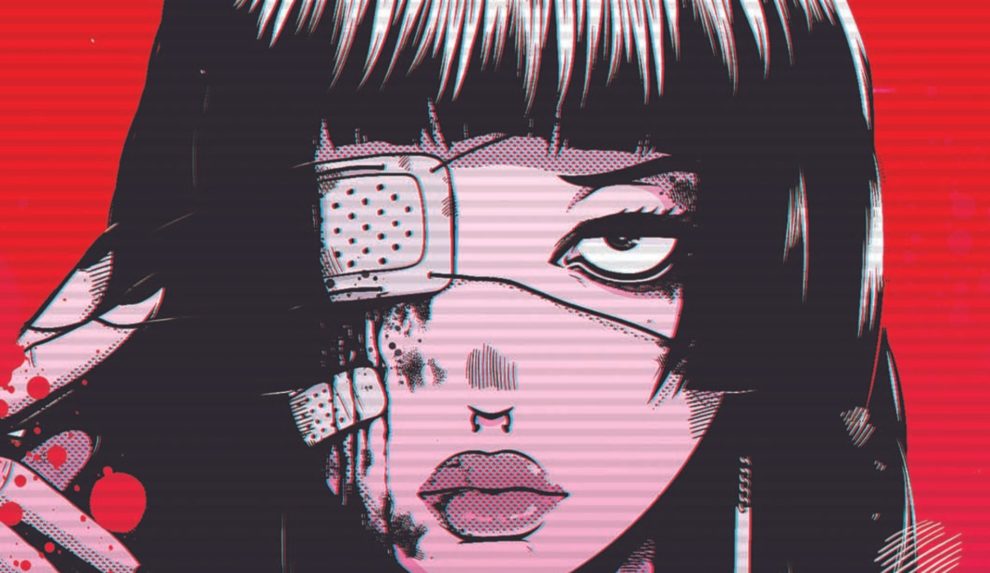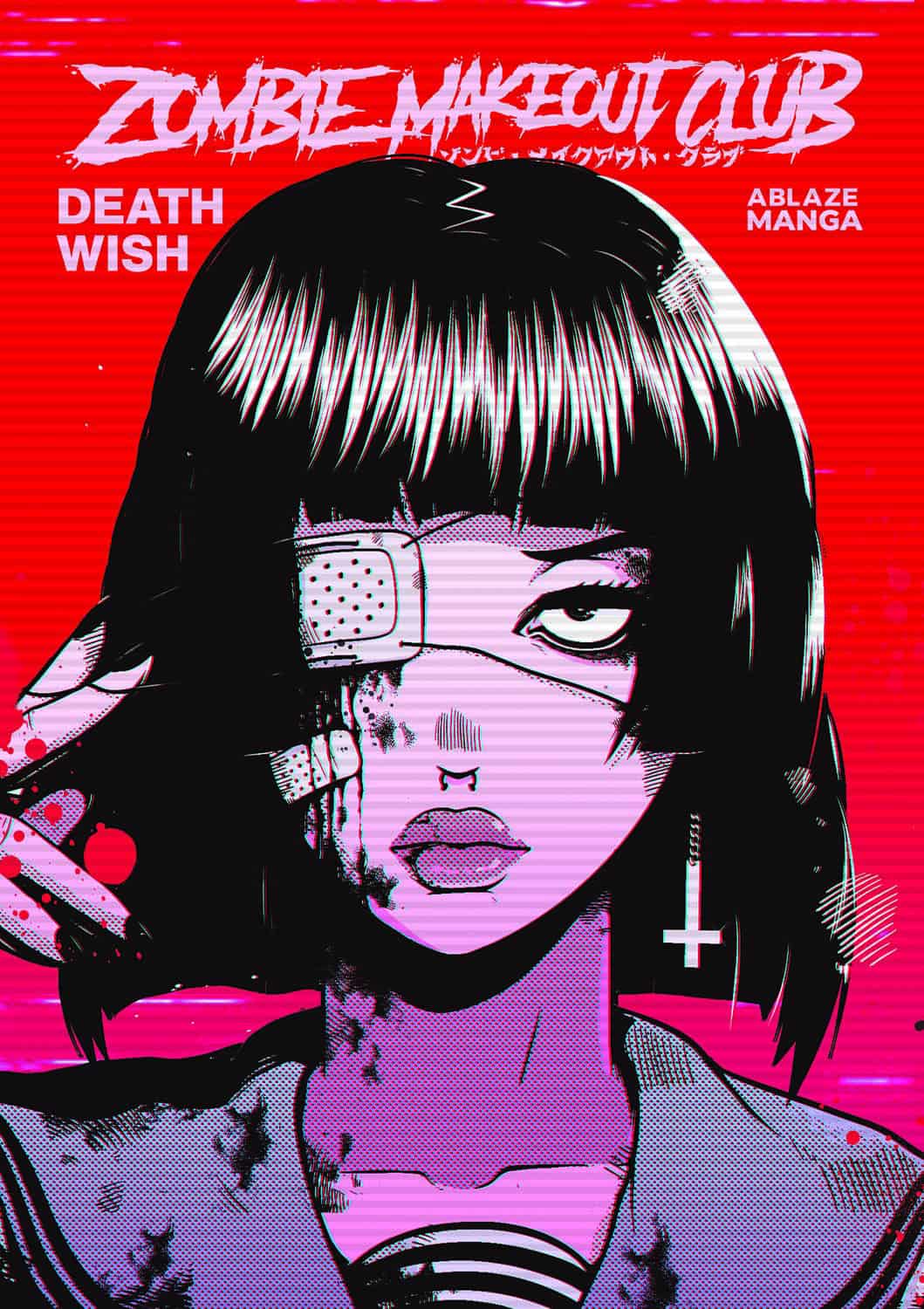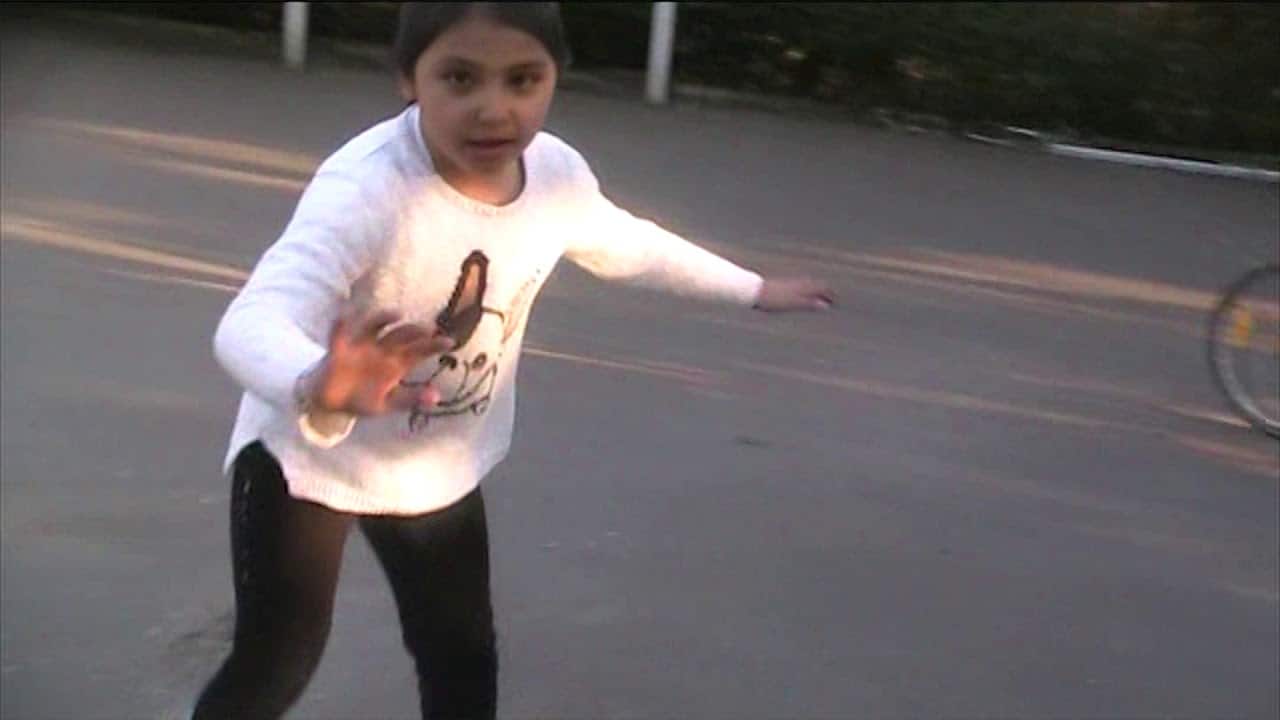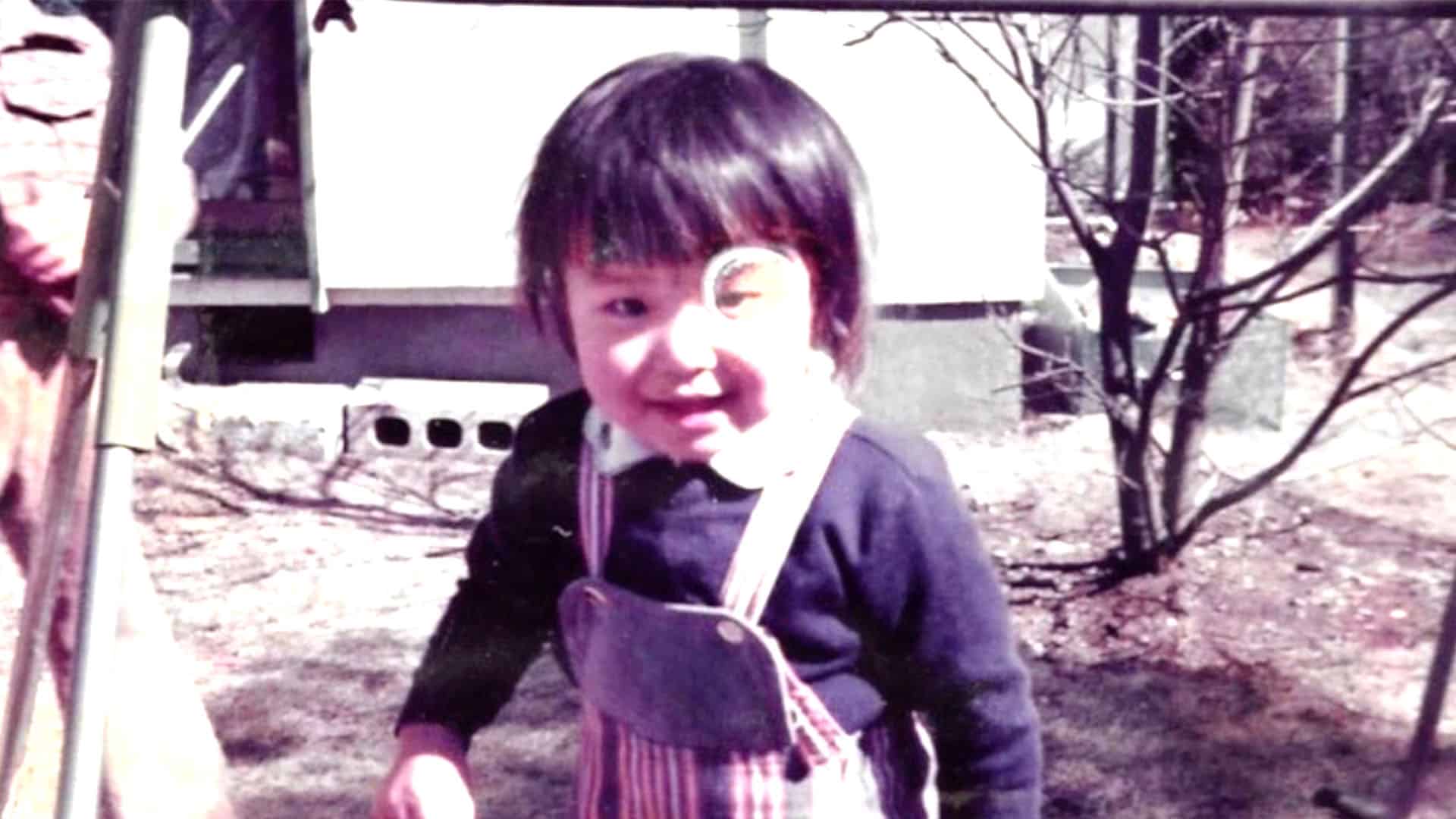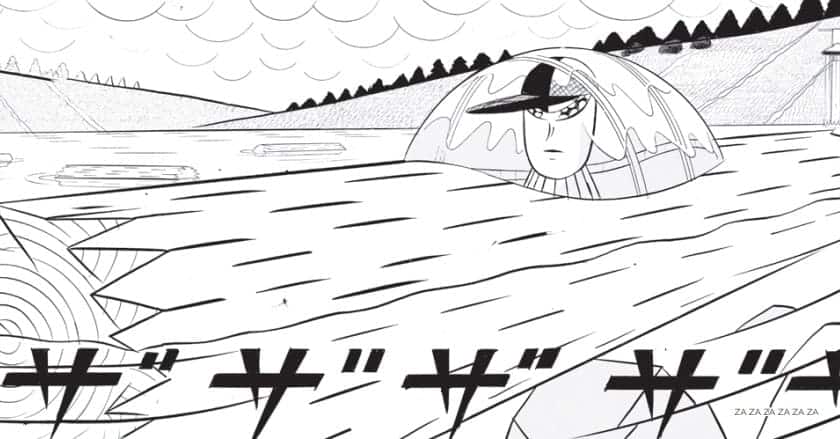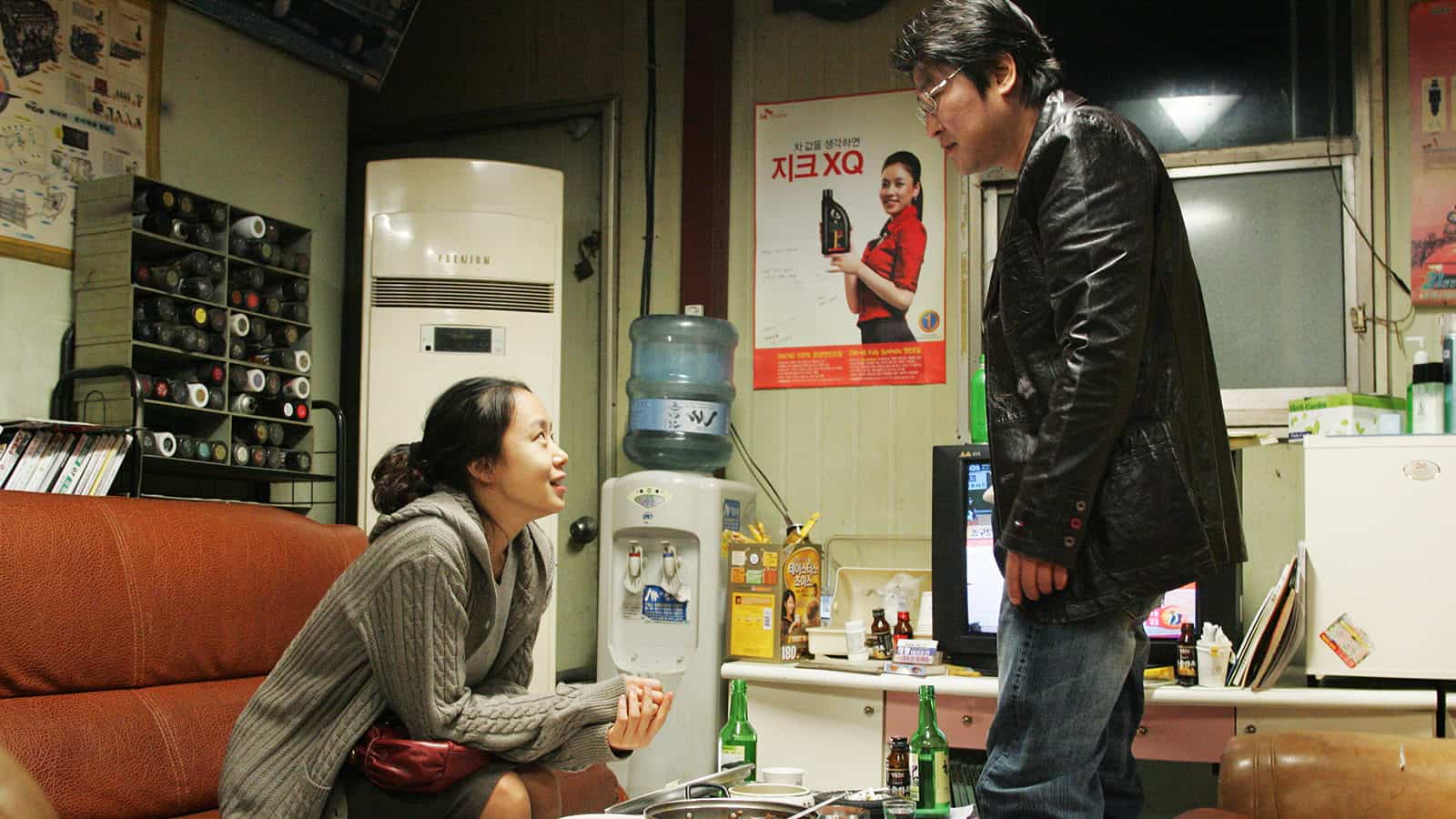“A rebellious high school student is brought back to life in a strange underground facility after committing suicide. Now, she must piece together not only how and why she has been resurrected, but also confront the fragmented memories of her past and the horrors of the laboratory that want to send her back to the afterlife.” (Ablaze)
“Zombie Makeout Club” is the brainchild of Peter Richardson, notable for the clothing design site whose sleek aesthetics and admiration of Japanese counter-culture have made it a recognizable and sought-after brand. Spinning out of this concept came an original webtoon to compliment the work, while further expanding on the lore behind the brand. In the footnotes of this release, Richardson notes that the work was inspired by Japanese Cyber-punk features like “Tetsuo The Iron Man” and “Rubbers Love”. This much becomes obvious in the final product, but it represents both the strengths and shortcomings of the project.
Where “Zombie Makeout Club” excels is in its artistic direction, and the book wonderfully captures that gritty punk aesthetic and injects it with stylized violence and fashion in a way that makes it instantly recognizable to Richardson's world. As such, I found myself constantly picking up the book and flipping through it and taking moments to admire the audacity and coolness of the art throughout, an experience that will likely be similar for those already fans of the aesthetic. The book kicks a** and is really f***ing cool when it comes to the artistic direction taken and the layout of action–it wears its influences on its sleeve and excels at capturing a very unique Japanese style despite being a Western comic.
However, the story within “Death Wish” is extremely disjointed and rather unremarkable when compared to the art. To an extent, this also speaks to the cinematic influences of the work, albeit, in this case, it misses the mark of what makes Japanese Cyber-Punk such an appealing genre. Taking the metaphorical and frenetic pace of “Tetsuo”, for example, its creator, Shinya Tsukamoto, was able to craft a story that worked within the medium of cinema through abstract storytelling. Comparatively, “Death Wish” feels like a series of stills taken from a similar structured work of cinema and trying to force it to make sense. Consequently, the project comes across as a cohesive story to the writer who envisioned it, but not one that is clear to the reader themselves–much like trying to explain an experimental film to someone who has never seen it. If Richardson is going to try to grow the “Zombie Makeout” brand through comics/manga as well as fashion, he may benefit from working with a skilled story writer who can vibe with the influences that make the brand so recognizable.
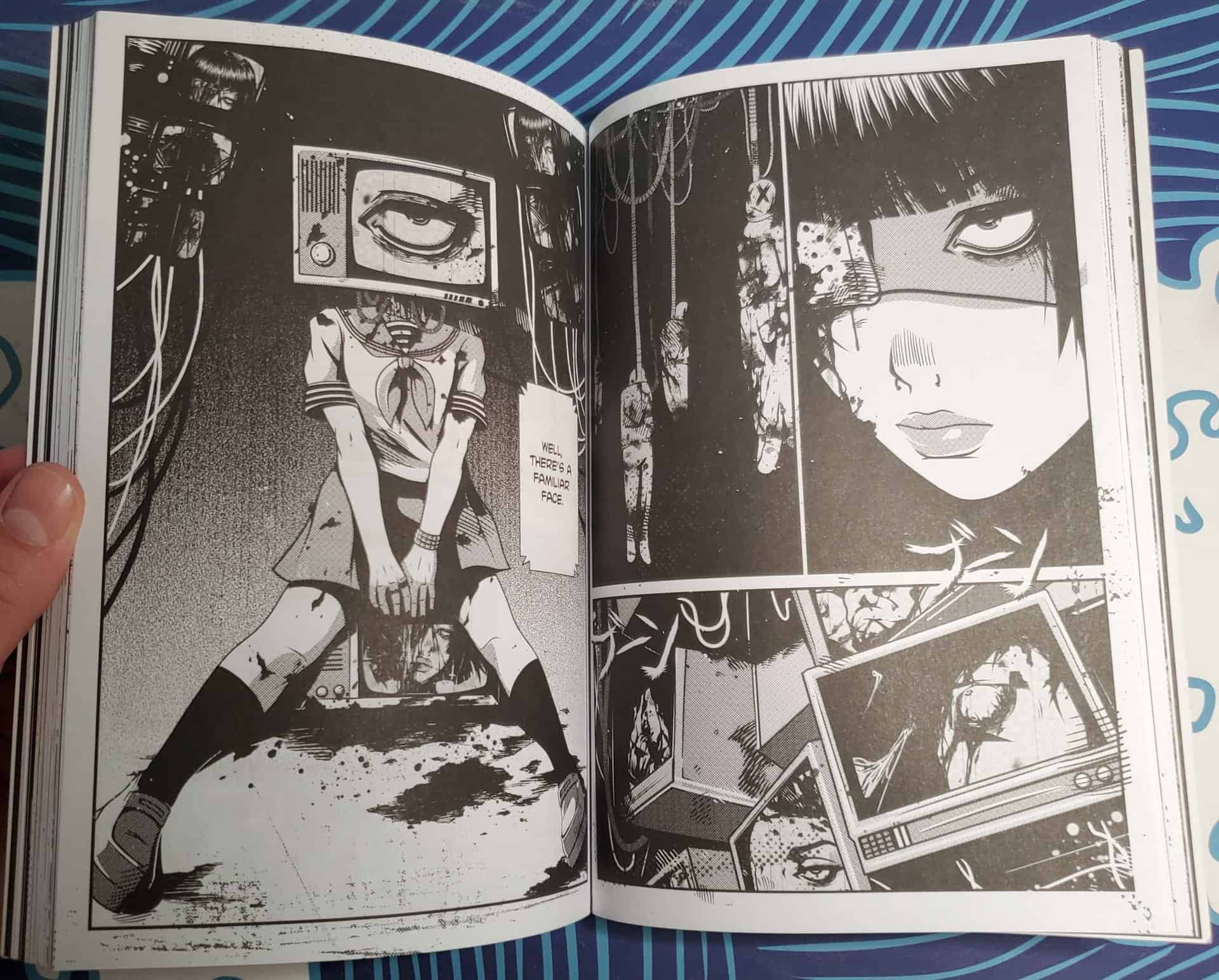
The release itself is impressive given the price, and for fans of “Zombie Makeout Club” it works wonderfully as a complimentary piece. If you were planning on grabbing some clothes, adding on the book seems like an easy extension as it is a wonderful showcase for the art. In fact, being stripped of any dialogue and sold solely as an art book may have even made this a more appealing product than its actual end result. The release is slightly larger than a traditional manga release, and the quality of the print compliments the beautifully chaotic aesthetic of the work.
Though a manga only in style, and even then there are a few subtle giveaways that this is the product of the West, “Zombie Makeout Club: Death Wish” really embodies the rebellious punk spirit of filmmakers like Shinya Tsukamoto, Gakuryu Ishii, and Shozin Fukui while offering elements of brutality that touch on the best the Ero Guro genre has to offer. Add a fashion-forward aesthetic that compliments the clothing brand and you have an amazing visual representation of the art of Richardson. However, collecting this release for anything beyond the art is bound to only bring disappointment, the story is a disjointed mess at its best and incomprehensible nonsense at its worse–a shining example of style over substance.


